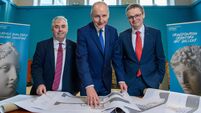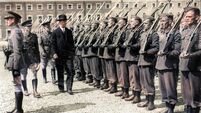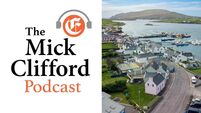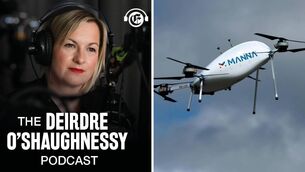Christmas Eve, 1920: Armed men attack Examiner offices
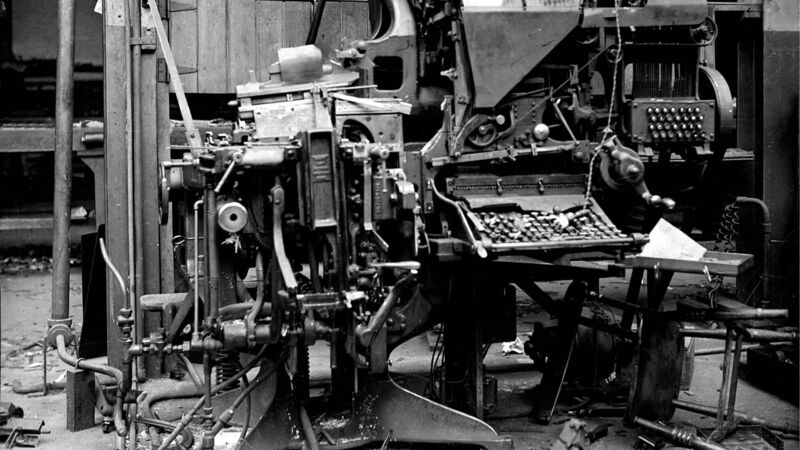
Linotype machines and printing presses at the offices of the Cork Examiner were wrecked by Republican forces during the Irish Civil War on December 24th 1920.. This picture shows some of the damage.




